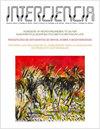阿尔及利亚东部奶牛养殖场执业兽医通报牛流产的影响因素研究。
IF 0.4
4区 综合性期刊
Q4 ECOLOGY
引用次数: 0
摘要
牛流产是造成阿尔及利亚养牛场和工业经济损失的最重要原因之一。从2021年11月至2022年11月,在阿尔及利亚东部进行了一项描述性流行病学调查,以量化这一祸害的程度,并使用随机分布在阿尔及利亚东部五个省的150名执业兽医的调查问卷,评估报告堕胎的风险因素。采用单因素和多因素logistic回归模型对不同危险因素进行统计分析。结果显示,83.3%的被审计兽医在过去12个月内流产率超过5%。在多因素logistic回归分析中,确定了一个危险因素和一个保护因素。事实上,所有研究的地区都有非常高的牛流产病例风险:巴特纳(优势比[OR] = 24.53;95%可信区间[CI]: 1.39 - 278.66), ssametf (OR= 73.08;95% CI: 4.37-669.68), Mila (OR= 245.22;CI: 18.51 - 2306.71)和Bordj Bou arveridj (OR= 49.09;置信区间:3.57—-738.69)。然而,夏季(OR= 0.23;95% CI: 0.06 - 0.48)被认为是一个保护因素,指定为与冬季和秋季相比,审计兽医报告的流产最少的时期。本文章由计算机程序翻译,如有差异,请以英文原文为准。
STUDY OF FACTORS INFLUENCING NOTIFICATION OF BOVINE ABORTIONS BY PRACTICING VETERINARIANS ON DAIRY CATTLE FARMS IN EASTERN ALGERIA.
Bovine abortion is one of the most important causes of economic losses in Algerian cattle farms and industry. A descriptive epidemiological survey was conducted from November 2021 to November 2022 in eastern Algeria to quantify the extent of this scourge and to evaluate the risk factors for reporting abortions using a questionnaire intended for 150 practising veterinarians randomly distributed in five wilayas of eastern Algeria. The statistical analysis of the different risk factors was carried out using a univariate and then multivariate logistic regression model. The results obtained showed that 83.3% of the veterinarians audited had had an abortion rate of more than 5% during the previous 12 months. In the multivariate logistic regression analysis, one risk factor and one protective factor were identified. Indeed, all the areas studied had a very high risk of bovine abortion cases: Batna (odds ratio [OR] = 24.53; 95% confidence interval [CI]: 1.39 - 278.66), Sétif (OR= 73.08; 95% CI: 4.37-669.68), Mila (OR= 245.22; CI: 18.51 - 2306.71) and Bordj Bou Arreridj (OR= 49.09; CI: 3.57-738.69). However, the summer season (OR= 0.23; 95% CI: 0.06 - 0.48) was considered a protective factor, designated as the period of least reporting of abortions by the audited veterinarians compared to winter and autumn.
求助全文
通过发布文献求助,成功后即可免费获取论文全文。
去求助
来源期刊

Interciencia
综合性期刊-生态学
CiteScore
0.80
自引率
25.00%
发文量
1
审稿时长
4-8 weeks
期刊介绍:
Interciencia is the monthly multidisciplinary publication of the INTERCIENCIA Association. It is dedicated to stimulate scientific research, its humanitarian use and the study of its social context, specially in Latin America and the Caribbean and to promote communication between the scientific and technological communities of the Americas.
Interciencia has been published uninterruptedly since 1976. Its Founding Director, Marcel Roche (endocrinologist and sociologist of science) was editor until 2008, and thereafter Miguel Laufer (neurobiologist) has been in charge. It has been included since 1978 in the Science Citation Index and other international indexes, and since 2008 it maintains an open access electronic version with material from 2005 onwards.
The priority areas of the journal, without exclusion of other areas, are Agronomy, Arid Lands, Food and Nutrition, Biotechnology, Ecology and Environment, Energy, Innovation and Technology Transfer, Marine Resources, Non-renewable Resources, Science Education, Science Policy, Study and Sociology of Science, and Tropical Forests.
Interciencia publishes in Spanish, Portuguese and English research and review articles, communications and essays, all of which are subjected to peer review. Additionally, it includes non-refereed sections such as Editorial, Letters to the Editor, Open Town Hall, Book Reviews and Upcoming Events.
All the material submitted to the journal for publication and accepted by the Editorial Committee in view of its quality and pertinence is subjected to review by peer specialists in the corresponding fields of knowledge. Neither the INTERCIENCIA Association, nor the journal or the institutions to which the authors belong carry responsibility for the contents. Signing authors are responsible for the material published under their names.
 求助内容:
求助内容: 应助结果提醒方式:
应助结果提醒方式:


